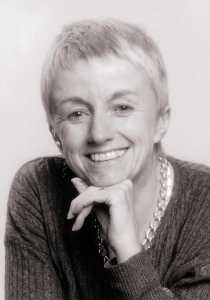 I’m very saddened to hear about the passing of Doreen Massey, a giant of Geography and the Social Science more broadly.
I’m very saddened to hear about the passing of Doreen Massey, a giant of Geography and the Social Science more broadly.
I first met Doreen in 1997 when she came to Queen’s University Belfast to present a talk. The first thing she asked was whether we could find a pub that was showing a Liverpool match after the seminar, rather than going for a meal. That evening her natural enthusiasm bubbled over as she shouted colourful advice and support at the screen and engaged in banter with other patrons. She was a lifelong Liverpool fan and regularly attended games at Anfield. In 2001 she generously joined the advisory board of NIRSA (many of whose researchers write for IrelandAfterNAMA) and over the next three years I met her a couple of times a year. She took great delight in sleeping in the Bishop’s quarters and as a keen twitcher would often walk round the campus to do a bit of birdwatching. In 2005 I proposed her for an honorary degree from the National University of Ireland and in May 2006 I had the honour of reading her citation at the ceremony and going for dinner afterwards with her and her sister. For the occasion my wife painted her a picture of the national bird of Nicaragua and in future years she would always mention it when we met. The last time we met was last year at the annual Doreen Massey event at the Open University, where I was lucky enough to give a plenary lecture. As usual she was in great form.
Doreen was big hearted, generous, witty, enthusiastic, and encouraging, but she also didn’t mind a fight and could happily demolish an opponent in a debate. A feminist and a socialist she didn’t just write about the world but enacted her beliefs, being very active in policy debates, protest and politics. Her thinking was expansive and insightful and she had a huge influence on the discipline. When we were putting together the list of people to include in the first edition of ‘Key Thinkers on Space and Place’ her inclusion required little thought. We included two of her books (‘Spatial Divisions of Labour’ and ‘For Space’) in the 26 discussed in ‘Key Texts in Human Geography’. She received numerous awards for her work, including the Prix Vautrin Lud (‘Nobel de Géographie’), several society medals and honorary doctorates. She was one of the few geographers that everyone in the discipline globally will have heard of and most likely read, and whose work has travelled well beyond the discipline’s borders. I’ve little doubt that the legacy of her writing and teaching will live on in those who encountered her and her many writings. She’s going to be sadly missed.
Rob Kitchin
March 13, 2016 at 8:46 am
[…] Rob Kitchin at Ireland after NAMA […]